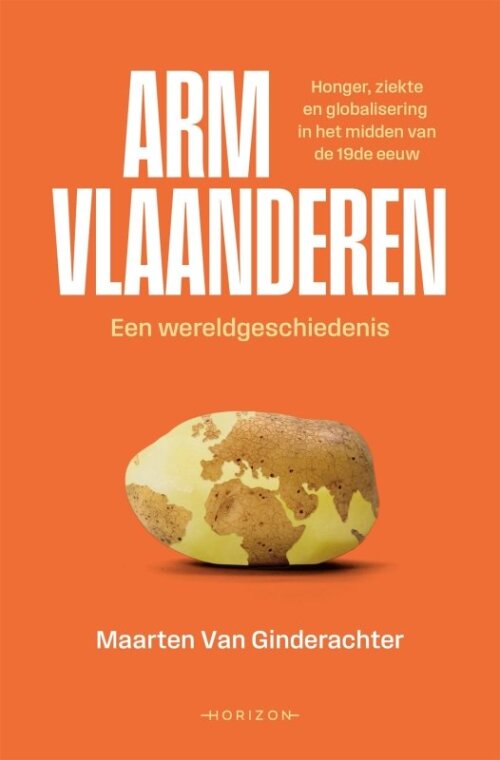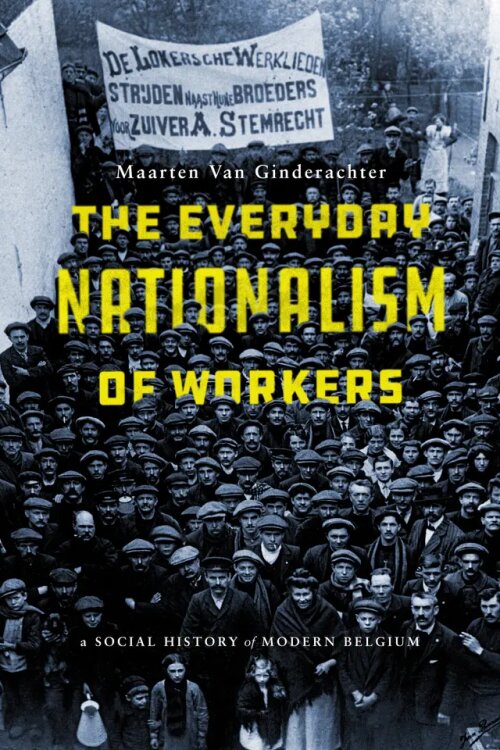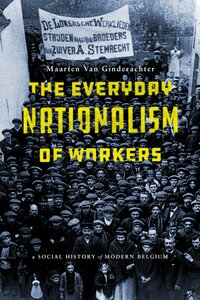What's new
Published in October 2025 in Dutch:

Arm Vlaanderen: een wereldgeschiedenis – Honger, ziekte en globalisering in het midden van de 19de eeuw [Poor Flanders: a world history – Hunger, disease, and globalization in the mid-19th century]
Flanders in 1850 is unimaginably poor. Hunger is rampant. Potatoes rot in the fields. Cholera and typhoid fever decimate the population. The linen industry, the last lifeline for many paupers, collapses. People drop dead on the streets from exhaustion.and are forced to eat tree bark and grass. This was the last Belgian famine in peacetime. This misery seems to come from a very distant past, but this era is closer to us than we think. The modern, globalized world is being born here.
The history of Poor Flanders is not only a local tragedy of unprecedented crop failures and the decline of the most Flemish of cottage industries, the linen industry. It is also a global story of infectious diseases crossing continents and oceans, of a potato blight coming from America, of Peruvian bird droppings and Senegalese gum making a big splash in Europe, and of unprecedented imports from the Wild West and the Far East.
Recent publication:

The Everyday Nationalism of Workers: A Social History of Modern Belgium (Stanford University Press, 2019).

Reviewed in: American Historical Review, English Historical Review, Historische Zeitschrift, Journal of Social History, Journal of Modern History, Histoire sociale/Social history, National Identities, H-nationalism, European Review of History: Revue européenne d'histoire, Trashumante. Revista Americana de Historia Social, Studies in Ethnicity and Nationalism, Labor. Studies in working-class history, Moving the Social: Journal of Social History and the History of Social Movements, Political Science Quarterly, Survival: Global Politics and Strategy, Cahiers Jaurès, Tijdschrift voor sociale en economische geschiedenis, Journal of Belgian History, Contemporanea, Wetenschappelijke Tijdingen.
Praise for the book:
- a "superb book" (John Breuilly, LSE)
- a "brilliant study" (Stefan Berger in Moving the Social: Journal of Social History and the History of Social Movements)
- "well-written, innovative, and engaging" (Matthew G. Stanard in Journal of Social History)
- "crackle[s] with insight and revealing detail" (Jakub Benes on H-nationalism)
- "a major contribution to the study of nationalism" (Carl Strikwerda in American Historical Review)
- "his important new study" (Martyn Conway in English Historical Review)
- "brilliant social history" (Erik Jones in Survival: Global Politics and Strategy)
- het "nieuwe meesterlijke boek van Maarten Van Ginderachter" (Lode Wils in Wetenschappelijke Tijdingen)
- "une synthèse claire et très argumentée reposant sur une impressionnante recherche", "un regard neuf et fort original sur une question trop peu abordée par les historiens" (Serge Jaumain in: Histoire sociale/Social history)
Academic biography

I hold a double Ma. in Germanic languages and history and a PhD in history from Ghent University. I am full professor of history ('gewoon hoogleraar') at the Department of History at Antwerp University, where I teach world history and contemporary history. The former chair of Power in History - the Centre for political history, I have served for ten years as Program (vice-)Director of graduate and undergraduate studies of the History Department between 2013 and 2022.
My research is mainly focused on the history of nations and nationalism in Belgium and Europe. I have written and co-edited several books and themed journal issues on the subject. I have also contributed to leading international journals such as Nations and nationalism, Social history, the International review of social history, the History workshop journal and National Identities.
I have held visiting positions at Harvard University (as a Fulbright scholar), at the University of California at Berkeley (Peter Paul Rubens Chair for the History and Culture of the Low Countries) and at the University of North Carolina at Chapel Hill.